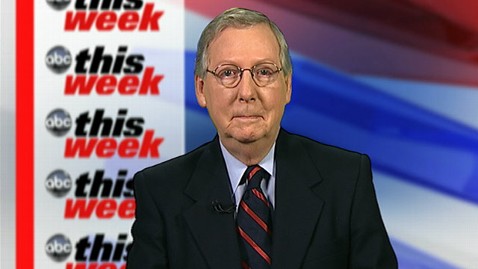
President Barack Obama and Vice President Joe Biden walk away from the podium after Obama made a statement regarding the passage of the fiscal cliff bill in the Brady Press Briefing Room at the White House in Washington, Tuesday, Jan. 1, 2013. (AP Photo/Charles Dharapak)
Analysis
New for 2013: In the Washington, D.C. fiscal wars we’ve gone from everything must be on the table to politicians declaring they won’t debate.
The fiscal cliff deal either averted disaster or compounded the problem, depending on who you ask. It certainly created new mini-cliffs in a few months as Congress and the president square off on the debt ceiling, spending cuts and government funding. But it also made sure the vast majority of Americans won’t see as big a tax hike as they might have.
President Obama was pretty clear late on New Year’s night as he reacted to Congress’s passage of a bill to take a turn away from the fiscal cliff. He won’t negotiate with Republicans about the debt ceiling.
“Now, one last point I want to make,” said the president, before wrapping up and hopping on Air Force One for a redeye to Hawaii. “While I will negotiate over many things, I will not have another debate with this Congress over whether or not they should pay the bills that they’ve already racked up through the laws that they passed.”
(Read more here about the Fiscal Cliff)
That’s pretty clear. No debt ceiling negotiation. Then he added for emphasis: ”Let me repeat: We can’t not pay bills that we’ve already incurred. If Congress refuses to give the United States government the ability to pay these bills on time, the consequences for the entire global economy would be catastrophic — far worse than the impact of a fiscal cliff.”
But in Washington, saying you won’t do something these days has almost become like an opening bid. At least, that’s how Republicans are treating the president’s line in the sand.
“The president may not want to have a fight about government spending over the next few months, but it’s the fight he is going to have because it’s a debate the country needs,” wrote Senate Minority Leader Mitch McConnell, the Kentucky Republican, in an op-Ed on Yahoo! News about 36 hours later. “For the sake of our future, the president must show up to this debate early and convince his party to do something that neither he nor they have been willing to do until now.”
“We simply cannot increase the nation’s borrowing limit without committing to long overdue reforms to spending programs that are the very cause of our debt,” McConnell said.
The national debt is soon set to reach $16.4 trillion. That’s not a problem that can be solved with one bill or budget. And the two sides will have to figure out some sort of way to talk about entitlement/social safety net reform – meaning things like Medicare, Medicaid, and Social Security – in addition to cutting spending and, most importantly, hope for an improving economy, to deal with those deficits.
House Speaker John Boehner, who has several times now failed to reach a big, broad fiscal deal with President Obama, told colleagues, according to The Hill newspaper, that he’s done with secret White House negotiations. He wants to stick with the constitutional way of doing things, with hearings and bills that are debated on Capitol Hill rather than hatched by the vice president and Senate Republicans.
Okay. Obama won’t negotiate on the debt ceiling. McConnell won’t not negotiate on the debt ceiling. Boehner doesn’t to do things by the book.
But McConnell won’t negotiate on taxes any more.
“Predictably,” McConnell had written earlier in his post, “the president is already claiming that his tax hike on the ‘rich’ isn’t enough. I have news for him: the moment that he and virtually every elected Democrat in Washington signed off on the terms of the current arrangement, it was the last word on taxes. That debate is over.”
It’s a new chapter in the ongoing fiscal saga in Washington. Back when the two sides were talking about a grand bargain or a big deal – some sort of all-inclusive reform that would right the listing deficit with one flip of the rudder – the popular trope was that “everything must be on the table.” That’s basically how Obama put it back in the summer of 2011 when he and Boehner failed to reach a grand bargain. He wanted higher taxes – they were calling them revenues back then. More recently, after Obama won the election and when he and Boehner were trying to hammer out another grand bargain to avert the fiscal cliff, Boehner wanted entitlements on the table. That means he wanted to find ways to curb future spending.
Both sides are declaring they won’t debate certain points, but this far – a full two months – before the mini-cliffs start, those are easier declarations to make than they will be when the government is in danger of defaulting or shutting down.
Even though they’re trying to take elements off the table, both men hope that coming negotiations can be a little more cordial and a little less down-to-the wire.
“Over the next two months they need to deliver the same kind of bipartisan resolution to the spending problem we have now achieved on revenue — before the 11th hour,” wrote McConnell.
“The one thing that I think, hopefully, in the New Year we’ll focus on is seeing if we can put a package like this together with a little bit less drama, a little less brinksmanship, not scare the heck out of folks quite as much,” said Obama.
That’ll be tough if neither side will talk about what the other side wants to talk about.











